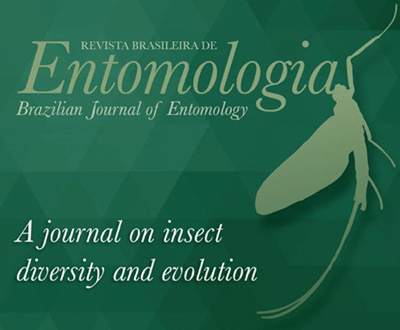The aphids of the genus Cinara Curtis are important pests of conifers in several countries. In Brazil, Cinara atlantica (Wilson, 1919) has damaged commercial plantations of Pinus spp. and biological control with predators can be a better option than chemical control. The objective of this work was to study biology and predation potential of coccinellids Hippodamia convergens Guérin-Méneville, 1842, Cycloneda sanguinea (Linnaeus, 1763) and Eriopis connexa (German, 1824) (Coleoptera, Coccinellidae) on nymphs of C. atlantica. The study was carried out under controlled conditions (temperature: 23 ± 1ºC, RH: 70 ± 10% and fotophase: 14 h). It was verified that C. atlantica nymphs are adequate as food for the three coccinellid species, assuring their development and reproduction. H. convergens and C. sanguinea presented higher longevity and reproduction capacity and also higher predation capacity (3832 and 3633 nymphs of C. atlantica against 2735 nymphs consumed by E. connexa during the complete cycle, respectively for the species). These predator species can contribute to the reduction of Cinara population in the field.
Biological control; forest protection; giant conifer aphids; Pinus


